RAF Global strongly believes that influencing quality of life on a sustained basis requires adopting a holistic, long-term and multi-sectoral approach to development. RAF Global practices a multi level approach to contribute towards improving quality of life of the most marginalised and disadvantaged people in select geographies. Its core programme focus is on women, young people, children, the elderly, and small and marginal farmers.
RAF Global also believes in the importance of setting up social safety net programmes and humanitarian support that is needed to help the most marginalised individuals, families and communities build resilience to survive and grow despite adversities. Good governance, including leveraging and linkages with governments across all levels can step up the development outcome of key sectors along with expanding the scale and scope of public services, which has a fundamental bearing on the quality of life. It is driven by the belief that good governance constitutes a cardinal sector as well as a cross-cutting theme across all programmes to effectively leverage public resources as well as improve the access to services and entitlements of marginalised citizens.
RAF Global has followed a multi-pronged approach in the delivery of its programmes, which has involved direct implementation as well as a grant-making role, and even short, time-bound collaborations for delivery of critical public services and humanitarian assistance. Humanitarian Response is an emerging area of intervention for RAF Global where it works in synergy with inter-agency groups and the local administration for an effective, coordinated response to emergencies.
Economic integration of poor and marginalised sections in both the formal as well as informal economy is the most powerful instrument for reducing poverty and improving the quality of life in developing countries. Strong growth led by meaningful and equal employment opportunities generates a virtuous cycle of shared prosperity and growth.
In reality, ILO has observed that there are enormous challenges in the world of work, particularly for two groups of workers, namely, women and youth. Social norms and the burden of unpaid care work, lack of job security in the informal work space, poor working conditions and limited opportunities for skill up gradation are the existing barriers and challenges for women. Globally, in 2019, the female labour force participation rate was only 47 percent compared to the male rate at 74 percent. Women in developing countries have an over representation in informal and vulnerable employment, where informal employment has largely implied self-employment or unpaid contribution as a family member. In case of self-employment, women experience low earning, high risks and barriers in access to credit, technology and other resources and assets that render the earnings inadequate to help them move out of poverty. Where women workers are engaged in formal employment, they face greater concerns around adequacy of wages and decent work conditions than their male counterparts. Globally, women are paid less than men and the gender wage gap is estimated to be 23 percent.
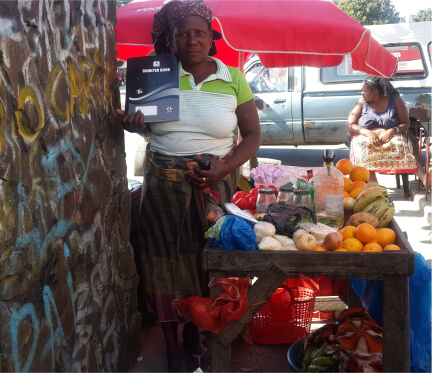
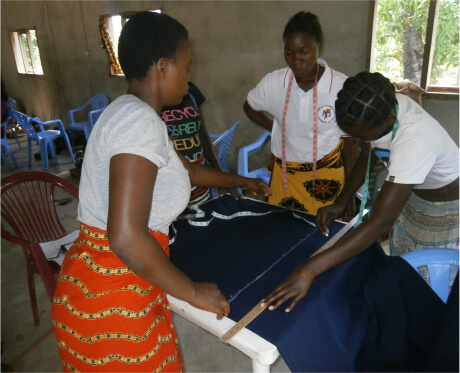
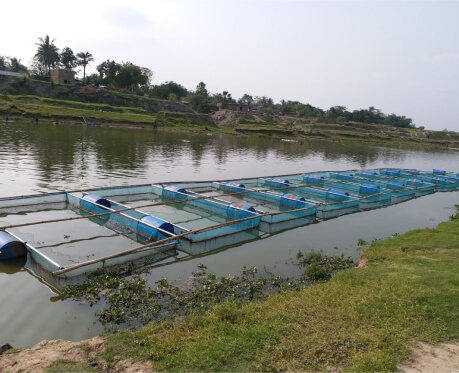
ILO identifies Age as another feature of labour market inequalities. 267 million young people aged 15 to 24 worldwide (ie 22 percent of that age group) are not in employment, education or training. The situation is particularly alarming in Africa where demography projections see absolute growth in population of 15-24 age group while creation of sufficient number of decent work opportunities is a pressing challenge. The present context of Covid-19 poses another serious challenge to the functioning of labour market for, unprecedented global employment losses of 114 million jobs have been reported in 2020, relative to 2019. It is higher for women ie. 5.0 percent than for men, and for young people (8.7 percent) than in older workers. The recovery of global economy based on labour force survey, up to 3rd quarter of 2020, was also found to be uneven with massive job losses in sectors such as construction, retail, food services while job growth was observed in high skilled sectors like finance, insurance and information and communication technology.
RAF Global’s programme on economic integration and livelihood support for women and youth is particularly relevant in the present context. The overall goal of the programme is to promote economic well-being of women, especially youth, by aiding their income-generating skills as well as providing them with enabling financial and market linkages. It covers several of the Sustainable Development Goals both directly and indirectly, such as No Poverty (Goal No.1), Food Security (Goal No. 2), Ensuring Health (Goal No.3), Gender Equality (Goal No.5), Decent work and Economic Growth (Goal No.8) and reducing Inequalities (Goal No.10).
Each of these initiatives aims to create opportunities for women and the youth and reduce at least a few layers of obstacles to participate equally in the labour force. Creation of products and services that suit their need (for savings, loan, insurance etc), improving their access to skill, markets, technology and business development services, investment in quality childcare support and in infrastructure that supports women’s safe access to economic opportunities forms the mainstay of the portfolio. This aligns with the expressed and felt needs of women across most developing countries.
For a country like India, Bangladesh and partly even in our core geographies in Africa where having a savings account in a financial institution is the gateway to accessing benefits of several schemes and entitlements, apart from easy access to credit facilities, financial inclusion is an effective step in the direction of reducing poverty. However, 42 percent of women remain outside of the formal financial systems. RAF Global promotes and strengthens self-help groups of women in order to improve poor women’s access to financial services along with aiding their financial deepening. Social enterprise funds have been set up to aid low-cost loaning to the Self Help Groups for ushering women-centric economic enterprises. A greater emphasis has been placed in improving women’s access to digital financial services so that they can access a wide array of financial products and services from government and the private sector, and aid security and prosperity for themselves, their families and communities at large. This has provided efficient ways to connect people with Banks, market and state not only to aid their economic growth but also reduce gender disparity.
When youth are empowered with skills they need for working life, they thrive. They not only support themselves, but also their families and communities at large. Access to skilling and up-skilling opportunities for women and youth throughout their productive years (as per identified sectors and industries with high demand for workforce), along with creation of an ecosystem of bouquet of services and support where their small businesses grow, are undertaken by RAF Global in order to ensure a path of resilience and recovery, greatly reducing their dependency on national and global markets for job creation.
It remains a key challenge in low-income countries (in the context of poor) that employment growth has largely created jobs of poor quality that have little tangible impact on improving livelihoods of marginalised communities. RAF Global’s endeavour for women and youth will be across the spectrum of decent work opportunities- in wage employment, self-employment and enterprise development by individuals and women’s and youth groups that could create work avenues for more people in disadvantaged rural and urban settings.
The world is experiencing rapid changes in the climate that manifest in extreme and frequent weather events which are impacting agriculture, affecting food systems, creating risks of food insecurity and livelihoods. Presently, 570 million farms across the world are facing the threat of climate change. On the other hand, it is also evident that agriculture is responsible for 70% of global water withdrawals, mostly used for cultivation. Groundwater irrigation has become a norm instead of a safety net during drought seasons. Propagating such a system also creates exclusion for small farmers as it is unaffordable. According to the UN Water Development Report 2018, the global demand for water is estimated to increase by 20-30% by 2030, with increase in world population and its demand for food. Agriculture including forestry, fisheries, livestock production generates around 5th of world’s greenhouse gas emissions. The Agriculture sector is therefore central to climate change response in terms of providing adaptation and mitigation synergies and for ensuring global food security and secure livelihoods.
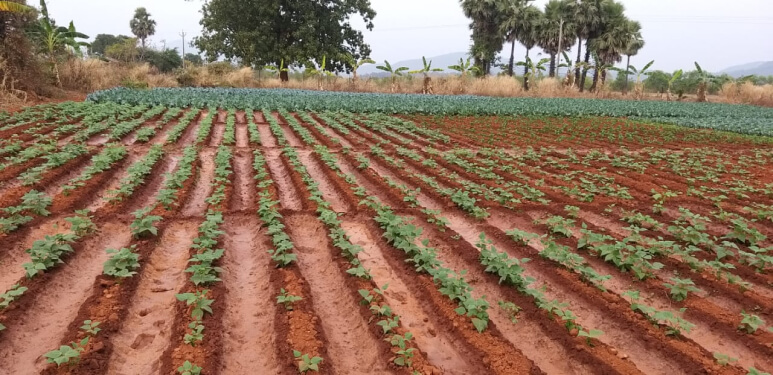
According to FAO, Climate Smart Agriculture is an approach for transforming and reorienting agricultural production systems and food value chains. FAO considers ‘Enabling Institutions’ (e.g financial institutions, land tenure regimes, institutions concerned with customary law, community-based organisations, insurance schemes and extension services) as essential for building the evidence base to empower, enable and motivate farmers to adopt climate-smart agriculture practices.
Climate Smart Agriculture has a direct correlation with several of the SDGs. Aiming at improving farm productivity with sustainable practices and efficient usage of water and energy that are pro-small farm producers, CSA practices contributes towards No Poverty (SDG Goal 1), Zero Hunger (SDG Goal 2), reduction in malnutrition/
Good Health and Well-being (SDG Goal 3), use of energy (SDG Goal 7), Decent work and economic growth (SDG Goal 8), Responsible Consumption and Production (SDG Goal 12), Climate Action (Goal 13) and Reduced Inequalities (SDG Goal 10).
The main goal of RAF Global’s programme on Climate Smart Agriculture is to promote and strengthen farming practices and systems that adapt to climate change in order to ensure sustainable income and food security for smallholder farm families. Any intervention for adaptation to challenges and mitigation of climate change effects must involve small holder farmers given that 750 million of the world’s extremely poor who live in rural areas work as small holder farmers in agriculture (2010 data) and are vulnerable to the climate change risks. RAF Global also believes that any response to climate change agriculture has to be gender specific and involve women in activities and strategies designed to enhance food security and livelihood.
Organic farming is defined by its method of production i.e it does not use pesticides or fertilisers in farming but uses crop rotations and mix farm strategies with mulch/compost/animal manure or green manure to build the soil’s organic matter. Conservation Agriculture is an approach that limits soil disturbance to a minimum, maintaining soil cover and diversifying crop production. It was mainly developed to reduce soil erosion and restore degraded soil. It also provides an entry point for climate change adaptation. RAF Global aggressively promotes both the technologies i.e Organic Farming and Conservation Agriculture as they adapt to climate challenges, can be easily implemented by farmers themselves with little inputs, and ensures sustained productivity and secured livelihoods.
System of Rice Intensification is another CSA technology that RAF Global aims to popularize among small and marginal farmers that involves individual transplantation of young seedlings, maintaining wide spacing between plants, alternate period of wetting and drying and the regular use of a mechanical weeder. It has resulted towards higher overall yield with less water consumption and lowered greenhouse gas emissions. Plants many a times also have more grain per panicle.
Through its emphasis on E-Agriculture, RAF Global aims to target the youth population in rural areas which is moving away from agriculture and is likely to be unemployed or underemployed. RAF Global will harness this group’s penetration and familiarity with technology usage to make them work productively in agriculture, using information and communication technologies. The intervention aims to bridge the technology gap of small farm producers through youth as change agents and overall, build climate resilient and sustainable agricultural practices, including access to expert advice around sourcing cost-effective and soil/climate appropriate farm inputs, smart agriculture practices, post harvest handling, agriculture disaster management, better access to market/trade, and farmer centric safety net and financial inclusion services.
Water is a fundamental input to global agriculture, be it in the form of rain fed sources or pumped irrigation. As per The World’s Water- a Biennial report on Freshwater resources, approximately 70% of freshwater withdrawal is for agriculture (covering irrigation, livestock and aquaculture purposes). In 2014, 3.99 trillion m3 freshwater withdrawals per year were reported. World’s growing population, present volume of freshwater withdrawal and climate changes require us to rethink water scarcity concerns. Existing practices affect groundwater, cause water logging, soil salinity, affect soil health and crop productivity.
RAF Global promotes and popularizes micro irrigation practices along with investing in building traditional water harvesting structures in arid and semi arid regions to promote agriculture especially targeting small and marginal farmers. It has clear benefits for increasing farm yield and sustainability of agriculture practices. RAF Global also supports interventions in the area of promoting the practice of drip irrigation among small and marginal farmers that includes building awareness, bringing various stakeholders together such as the government agriculture extension department, farmers, financial services providers for offering financial support and also private sector drip irrigation suppliers for promoting a shift to the DI technology. Beside these, effective water governance forms a core intervention of RAF Global in order to ensure more equitable and judicious use of water from common sources.
There is an inescapable link between poor health and poverty, and they go hand in hand with each other. Public health and nutrition are integral to RAF Global’s larger mandate of improving quality of life. RAF Global endeavors to improve the health of millions of women, children, adolescents, and the elderly belonging to the most marginalised section of society in selected geographies across Asia and Africa. We adopt an integrated and multi-sectoral approach and work hand-in-hand with governments and a plethora of local partners to address some of Asia’s and Africa’s most challenging health issues, with the understanding that complex health problems require integrated solutions.
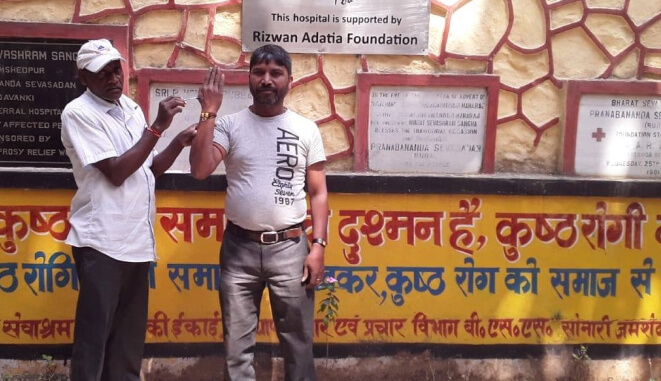
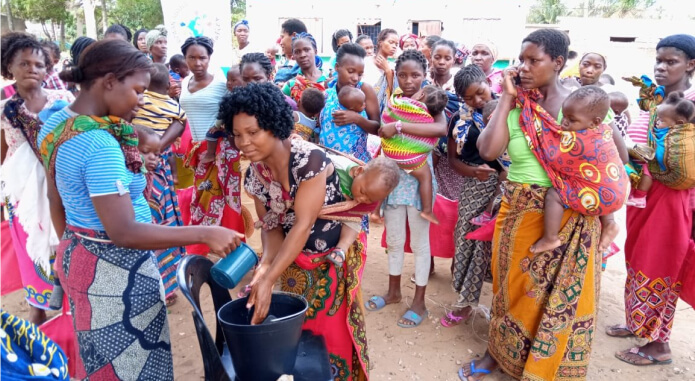
The public health and nutrition portfolio is driven by the goal of enabling marginalised and disadvantaged individuals and communities to access better health services in order to optimize their health and well-being and realize their full potential. RAF Global’s health and nutrition portfolio aligns with SDG 2, 3, and 6 of the UN Sustainable Development Framework.
RAF Global’s health interventions cover both, the novel infectious, chronic, and non-communicable diseases (NCDs) and the Neglected Tropical Diseases (NTDs) since we understand that these diseases disproportionately affect low-income economies and further stress the already weak health systems in these regions, create exorbitant costs at the household level, affect individual productivity, including loss of income and may further push people into poverty and debt.
Among the critical diseases, RAF Global focuses mainly on cancer, which is the 2nd leading cause of death globally, responsible for 10 million deaths in 2018. Beyond NCDs, leprosy, cataract, and access to eye care for an aging population, hearing impairment and cleft surgeries for children are areas where RAF Global has brought together resources and specialized skills to successfully address the needs of disadvantaged communities across Asia and Africa, who have little access to specialized health care services and voice in policy influence. Leprosy for example, though eliminated globally, yet it affects 2,00,000 people every year as new cases, and causes some form of disability in millions, across the globe. Similarly, the global figures for eye care are alarming. According to Dr.Tedros Adhanom Ghebreyesus, WHO Director-General, “it is unacceptable that 65 million people are blind or have impaired sight when their vision could have been corrected overnight with a cataract operation…” With regard to hearing impairment, globally, 1.5 billion people live with some degree of hearing loss out of which, 430 million require rehabilitation services for their hearing loss. Another disease which RAF Global endeavours to address is Thalassemia, considering that the disease affects approximately 4.4 of every 10,000 live births throughout the world. It is more prevalent in tropical and subtropical regions of the world.
RAF Global’s intervention on the above diseases focuses on creating awareness about them in communities, strengthening systems for preventive healthcare, supporting detection, specialized care including surgeries, and promoting effective referral service programmes. With regard to hearing care, the foundation makes the hearing devices accessible to disadvantaged individuals thus restoring their communication with the world and putting a stop to exclusion due to the impairment.
Effective health systems remain a driving force for better public health and well-being. There are regions within our core geographies that grapple with grossly deficient healthcare systems plaguing health services. RAF Global supports the expansion of health systems by providing those areas with a chance to be healthy and prosperous with poor people accessing better quality affordable healthcare facilities. This is achieved mainly by strengthening the public healthcare system and supporting government interventions, vaccinations and extending healthcare access to remote areas through camps for diagnosing health issues at early stages as well as to provide proper emergency care. Maternal health and child care has been one of the key areas of impact, where RAF Global committed its resources for strengthening the public healthcare system. Apart from strengthening health systems, we deliver essential health care in complex operating environments.
Access to clean water and sanitation is deeply linked to poverty. It is estimated that globally, 2.4 billion people worldwide do not have adequate sanitation facilities and 663 million do not have access to improved drinking water sources. Through its Water, Sanitation and Hygiene (WASH) program, RAF Global contributes towards the prevention of Neglected Tropical Diseases (NTDs) in its project areas in Asia and Africa. These diseases thrive where people do not have access to water and sanitation facilities. RAF Global builds boreholes, water tanks and latrines in the under-resourced settings, creates awareness among school children on hand-washing practices and menstrual hygiene (for adolescent girls), and sets up safe drinking water facilities and toilets in schools. As a long-term commitment to sanitation, RAF Global has endeavoured to develop a sustainable system of solid waste management in one district of Gujarat, in India, working in partnership with the village panchayat i.e the third stratum of governance.
Social safety nets are critical in the protection and welfare of the poorest. RAF Global views the contribution of SSN not merely in terms of impact on the challenged families, but also their systemic benefits-in enabling better food security, household consumption and human capital at large. RAF Global works towards strengthening SSN in marginalized areas by building access of poor and vulnerable households as well as through its nutrition supplements program. In addition to the strength meal programme, RAF Global also endeavours to fill the critical gap in survival needs of vulnerable age groups such as senior citizens and young children living on the streets, as well as pre-primary school level children, enrolled at various early childhood development centres in certain resource-constrained regions, across Asia and Africa.
Education is sine qua non to peace, prosperity and development. Every child has the right to access safe and quality education. It is one of the most defining indicators of human development. However, 12 million children across the world are out of school and another 250 million are not learning basic skills as a result of poor quality of education. Poor learning conditions of disadvantaged students (exacerbated by poverty, location, ethnicity, gender, disability etc) result in further deterioration of learning outcomes.
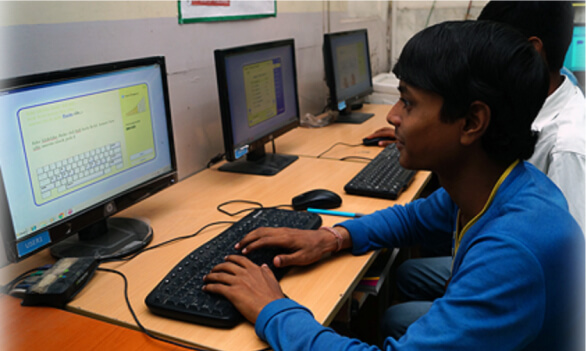
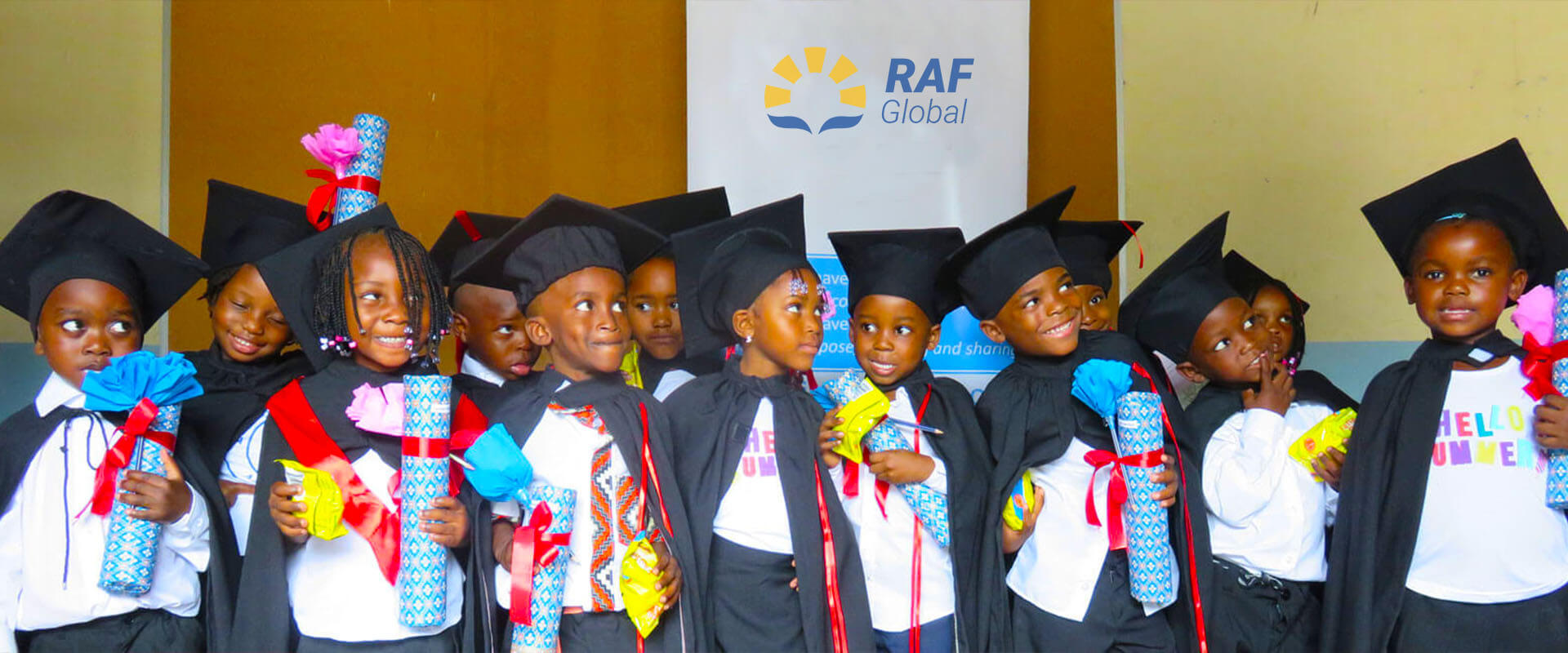
Acquisition and application of a wide range of knowledge/skills are imperative for the progress of individuals as well as societies. For individuals, this translates into decent employment opportunities, earnings, health outcomes and poverty reduction and for societies; it ignites innovation, strengthens institutions and fosters social cohesion (World Development Report, 2018). However, millions of children worldwide, gain adulthood without appropriate life skills and either remain unemployed or get absorbed in unstable, informal employment that does not offer any scope of skill-building during their work life. The global think tanks and intelligentsia holds the dismal quality of education in schools responsible for the status quo.
Education is at the heart of RAF Global’s mission. RAF Global’s programme on Education and Technology strives to equip girls, boys, and young adults with knowledge, skills, technology, and values so that they can maximize their potential and further contribute to the process of nation-building by becoming responsible citizens. The education programme of RAF Global aligns with the SDG 4 goal of the United Nation, which focuses on ensuring equal opportunities in access to quality learning opportunities at all levels of education, in a lifelong perspective.
Along with promoting equitable and universal access to quality education for underserved communities, RAF Global intends to reinforce and improve the country-specific education systems with the clear aim of accelerating learning with sustainability as an important measure.
Digital technology has been at the forefront of development in many countries that have leveraged it for economic growth and for improving the lives and livelihoods of citizens. In the next 5 years, the number of mobile phone users will reach 5.9 billion – or 71 percent of the world’s population. The majority of these new users will be in Sub-saharan Africa, Latin America, and Asia where mobile phones enable access to e-commerce, digital financial tools, educational materials, and a range of other services. Digital inclusion, however, remains a challenging area with, half of the world’s population without internet access, mostly in developing countries. In its core geographies, the internet penetration is much less in rural areas compared to urban areas and more women and girls tend to be offline than men.
Considering that the digital divide is a gendered one, and creates an impediment to self-advancement for girls as well as boys living in economic poverty and other disadvantages, RAF Global invests in providing equal access and exposure to information technology in schools that involves supporting IT infrastructure, broadband access, ICT devices and a plethora of other products to enable internet aided learning. In an increasingly interconnected world, RAF Global employs technology as a power play to aid scale, efficiency and learning outcomes in schools. Overall, the efforts are in the direction of increasing the number of youth who have relevant skills, including technical and vocational skills for employment, decent jobs and entrepreneurship.
RAF Global believes that the early years in a child’s life are critical in many ways. It, therefore, endeavors to improve the teaching and learning environment in pre-primary schools/centres in Africa and Asia, (covering both the rural and urban areas) and promote higher transition rates to primary grades in schools. In poverty-stricken societies that face a host of other unstable conditions in the social and political environment, there is likely to be stress, reduced parental involvement and depleted home learning environment that profoundly affects poor children’s cognitive and emotional well-being. Well-functioning pre-primary schools/centres in such neighbourhoods often fill the critical gaps in care, nutrition and developing structured engagement to facilitate appropriate development in young children. RAF Global’s support is demonstrating results in this area and its curriculum for parents and guidance to them in child-rearing by the centre teachers offer real-life solutions for the child’s development. RAF Global is working to improve early years learning and also keep costs on the policy agenda of various governments across all levels.
RAF Global believes that school infrastructure has an important role in the development of an inclusive and effective education system. RAF Global, therefore, invests in improving the learning environment in schools and hostels through buildings, classrooms, libraries, laboratories, and equipment in resource-poor regions/schools. This is objectively supported by a plethora of teacher training around pedagogical and content development. There is strong evidence that high-quality infrastructure with high-skilled teachers facilitate better learning outcomes, and reduces dropout rates, among other benefits. RAF Global’s initiatives particularly target to increase the rate of retention and transition of girls to senior school and create an encouraging environment for girls’ education with enhanced learning outcomes. The investment in school sanitation blocks for girls and boys similarly, creates equal access to essential facilities within the school and promotes care of personal hygiene among adolescent girls.
RAF Global recognises that education must provide its learners with the knowledge, skills, attitude and values to lead productive lives, make informed decisions and contribute as responsible citizens in the wider society to foster peaceful societies, practice gender equality, sustainable living and health and well-being for all. RAF Global invests in building leadership in school students through a range of initiatives integrated with sports and cultural activities. RAF Global will partner and invest in organisations developing value-based education systems and strategies to optimize behaviour promoting pluralism, environmental sustainability, interpersonal skills and social cohesion.
Governance is a significant determinant of poverty. The World Development Report produced by World Bank in the last three decades has conclusively proven that anything less than good governance is an economy’s Achilles’ heel –a vulnerable point that can hobble growth and inclusive development in otherwise functional democracies. In the words of late UN Secretary-General Kofi Annan: “Good governance is perhaps the single most important factor for eradicating poverty and promoting development.”
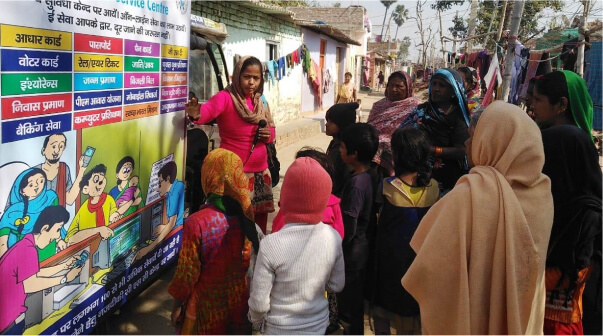
Good governance is considered key to achieving sustainable development and human well-being as chartered by the United Nation. Of particular relevance is goal 16 of the SDGs (or SDG 16), which is titled “Peace, Justice and Strong Institutions” and aims to “promote peaceful and inclusive societies for sustainable development, provide access to justice for all and build effective, accountable and inclusive institutions at all levels”. More generally, all the 17 Sustainable Sustainable Development Goals (SDGs), directly or indirectly, need an effective public sector for successful implementation, which is highly incumbent on good governance.
RAF Global believes that good governance has a fundamental bearing on the overall quality of life. However, sub-national governments in the targeted geographies are grappling with resource constraint, poor supply-demand connect, endemic and pervasive corruption, digital divide coupled with lack of public awareness and participation impeding the process of growth and development.
The overall programme goal is to promote and strengthen good governance practices among sub-national governments in order to expand the scale and scope of public services for inclusive growth, well-being, and shared prosperity of the citizens, especially for those belonging to the marginalized and disadvantaged section of the society. Since 2015, RAF Global has emphasized on promoting good governance in all its aspects, including ensuring efficient and inclusive public sectors and further pressing for downward accountability of public services with an active and engaged citizenry, primarily at the sub-national level.
Enabling demand-supply connect for effective public sectors
Prioritizing and provisioning of public services to best reflect the pressing local demand remains a daunting task in the specific geographies where RAF Global remains active. RAF Global attempts to connect the demand and supply side of governance by developing multiple mechanisms and empowering channels that interface citizens with their immediate governments, in order to align public resources around the needs and aspirations of the local communities, especially women. The civil society which remains the reservoir of formal and informal organizations outside of state control is also encouraged to effectively articulate and voice community needs at appropriate platforms in order to increase public influence in policy and services of sub-national Governments. Enabling demand-supply linkages has created appropriate platforms for citizen and their collectives to concurrently express their voices and concerns for increased citizen-centric public budgeting and allocation.
A wide range of e mechanisms has been further employed for mainstreaming government schemes and entitlements among the poor and marginalized section of the society, especially women by bridging the digital divide and sustain last-mile reach out and follow up.
Public Accountability
World Economic Forum estimates the global cost of corruption at $2.6 trillion, or 5 percent of the global gross domestic product (GDP) knocking out the chances for millions to come out of grinding poverty. Corruption hits the poor hardest. RAF Global operates in countries and geographies with some of the highest corruption levels as per the corruption perception index released by Transparency International, in the last five years. Poverty, development, growth, and investment-all suffer at the hands of corruption. Hence, public accountability remains the most compelling aspect of RAF Global’s endeavour to promote good governance.
Increasingly, RAF Global has focused on the “demand side of governance,” that involves social accountability, or the capacity of citizens to demand greater responsiveness from public services and institutions. RAF Global conducts a broad range of actions and mechanisms that empowers citizens, communities, and civil society organizations to demand for better public services by voicing their concerns and hold public officials and departments accountable. These include participatory budgeting, public expenditure tracking, monitoring, and audit of public services delivery through citizen report cards, social audit, etc at the sub-national level. A wider array of e mechanisms too has been employed for effective provisioning of public service by highlighting gaps for remedial action resulting in better flow, quality, and outreach of public services.
RAF Global has been proactive in its response to emergency situations in Asia and Africa be it any natural calamity or public health crisis. It assesses the situation on the ground and works with volunteers, inter-agency networks and local administration for a coordinated response, in order to provide life-saving assistance. It adopts a comprehensive approach to disaster relief. RAF Global lays focus on addressing the needs of women, girls, the specially abled and other vulnerable groups to ensure that appropriate and timely relief support reaches them to alleviate their suffering. Besides these, RAF Global aims to protect their fragile livelihoods and further guard them against slipping into extreme poverty.
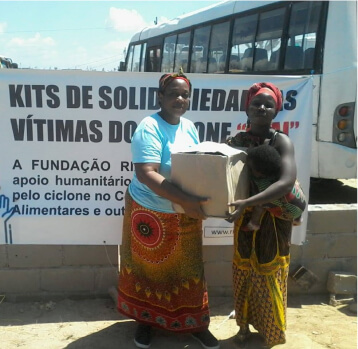
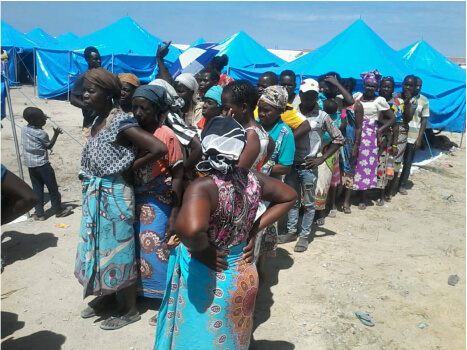
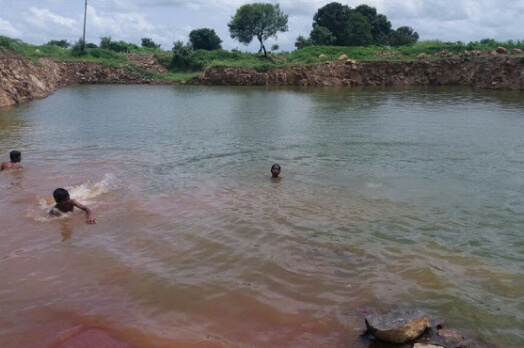
In the past, RAF Global has supported several villages in the Marathwada region of Maharashtra, a belt prone to severe drought, for drought proofing. This has benefited nearly 7000 people by increasing their access to assured water. The intervention resulted in ground water level increase and recharging of water sources like wells and borewells. After the cyclones Idai- that affected families in Beira and Kenneth that affected families in Cabo Delgado province in Mozambique, RAF Global undertook relief work reaching out to 38,000 beneficiaries.
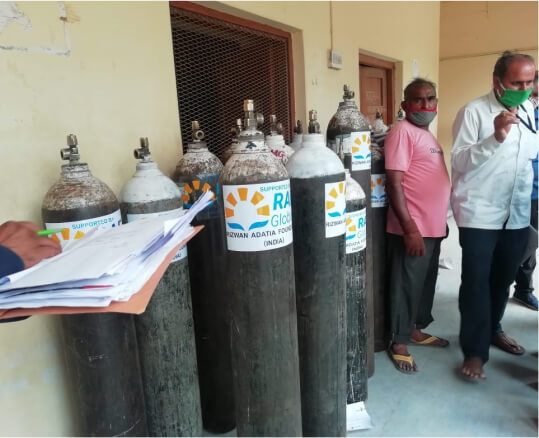
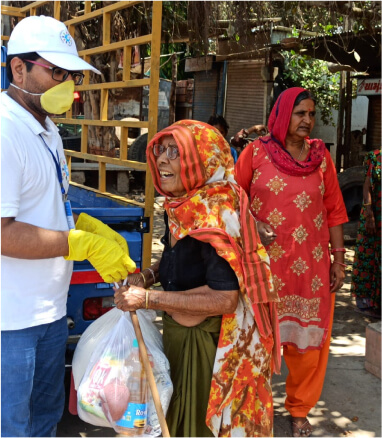
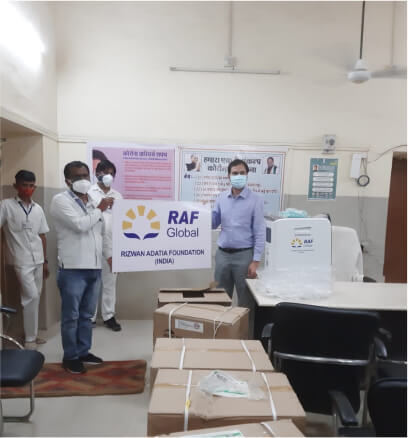
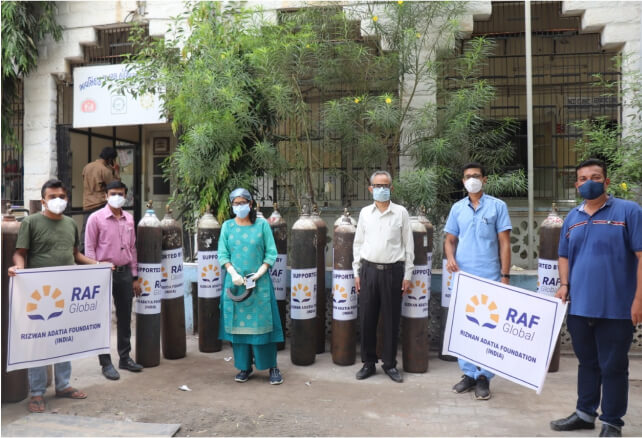
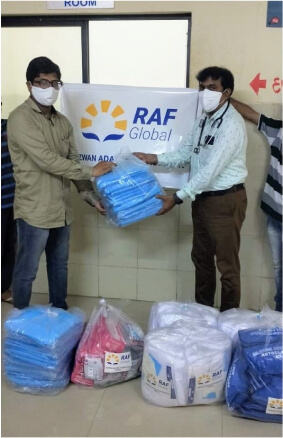
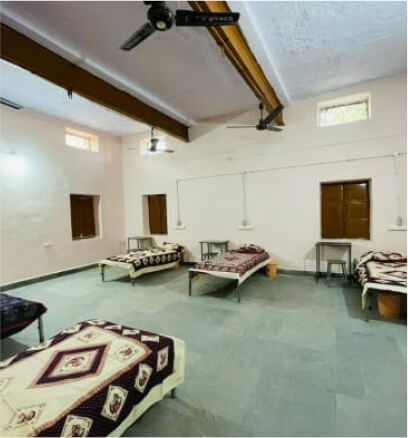
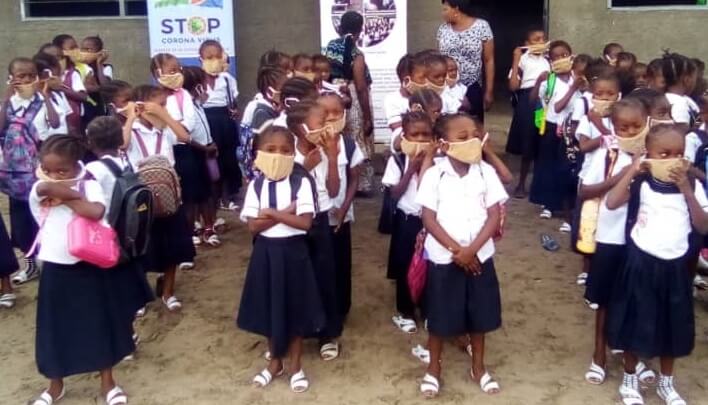
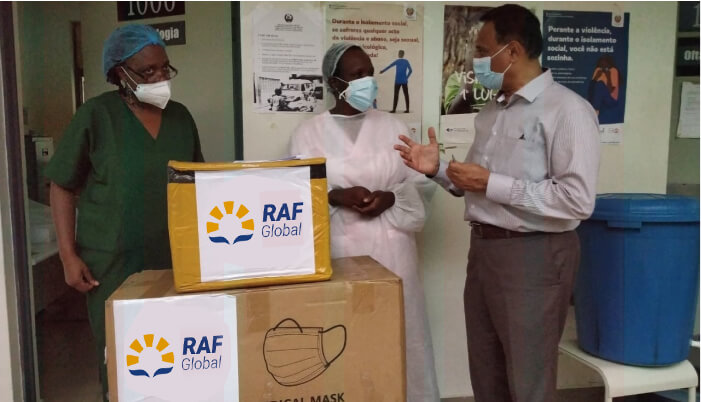
During the 1st phase of the Covid-19 pandemic, RAF Global supported local communities in Mozambique, Democratic Republic of Congo, Bangladesh and India in several ways. In Mozambique, RAF Global donated medical supplies, protective gears, masks and face shields for doctors to the Government headquarter for distribution to various medical centres across the country. Additionally, it catered to the acute need for several items used by paramedics in Hospital Provincial de Matola and Centro de Saúde 1 de Maio, Kamaxaqueni, Maputo. The Centre of Aspiration for Youths of Mozambique was supported to produce face masks in bulk. In Democratic Republic of Congo, RAF Global through its centres took up steep production of 75,000 safe masks through about 100 students enrolled in tailoring course, and with the raw materials provided by the local donors. These were later distributed in local communities, and 16,000 masks particularly handed over to various schools and orphanages. Similarly, the digital leaders supported through The Hunger Project were encouraged to mobilise relief materials locally, and render succour to the most vulnerable groups across 150 villages in Bangladesh.
In India, during the initial country-wide lockdown in the 1st phase of the pandemic, RAF Global undertook relief measures in the form of distribution of dry ration and food supplies to about 900 severely impoverished families in slum areas and nearby villages of Porbandar town and 2 villages of Junagadh district, namely, Maliya Hatina and Gadodar.
During the 2nd wave of Covid-19 in India, RAF Global has provided critical support to the district administration in Porbandar, Junagadh, Jaisalmer and Barmer districts of the states of Gujarat and Rajasthan. This has involved setting up of a 100 bedded Covid-19 care facility in Jaisalmer district, Rajasthan and supporting a wide range of high costing, essential medical equipments currently facing short supplies such as oxygen cylinders, concentrators, regulators with humidifiers, bain breathing circuits, stretchers, cylinder trolleys, medicines, injections and sanitisation items, PPE gears etc to several hospitals/Covid care centre in the above districts.
In Mumbai and Goa, which was a hotbed of the infection, RAF Global supported its local partner, Bharat Sevashram Sangha with medical kits for home isolation and other preventive care support items for the residential hostel for poor cancer patients undergoing treatment in the city. Through Afghan embassy and schools run for the children of Afghan refugees in Delhi, RAF Global endeavours to provide essential food supplies to 300 affected families to address food scarcity and hunger in the community.
RAF Global’s key learning during the Covid-19 emergency response in Asia and Africa has been that public health system at the local level (for e.g the districts and block level in India) has to be firmed up and transformed into responsive, self-sufficient, world-class medical facilities where large numbers of patients can be admitted, attended and get cured locally for a range of medical diagnosis, care and treatment. With the objective of making district hospitals self-sufficient in medical oxygen requirements, RAF Global has mobilised substantial resources, including setting up an oxygen plant of 850-1000 LPM in one of the district hospitals in Gujarat.
Humanitarian Response therefore, is an emerging programme area for RAF Global, an area it is envisioning to grow so that RAF Global can provide a wide array of disaster responses tailored around local realities, with a long-term approach.